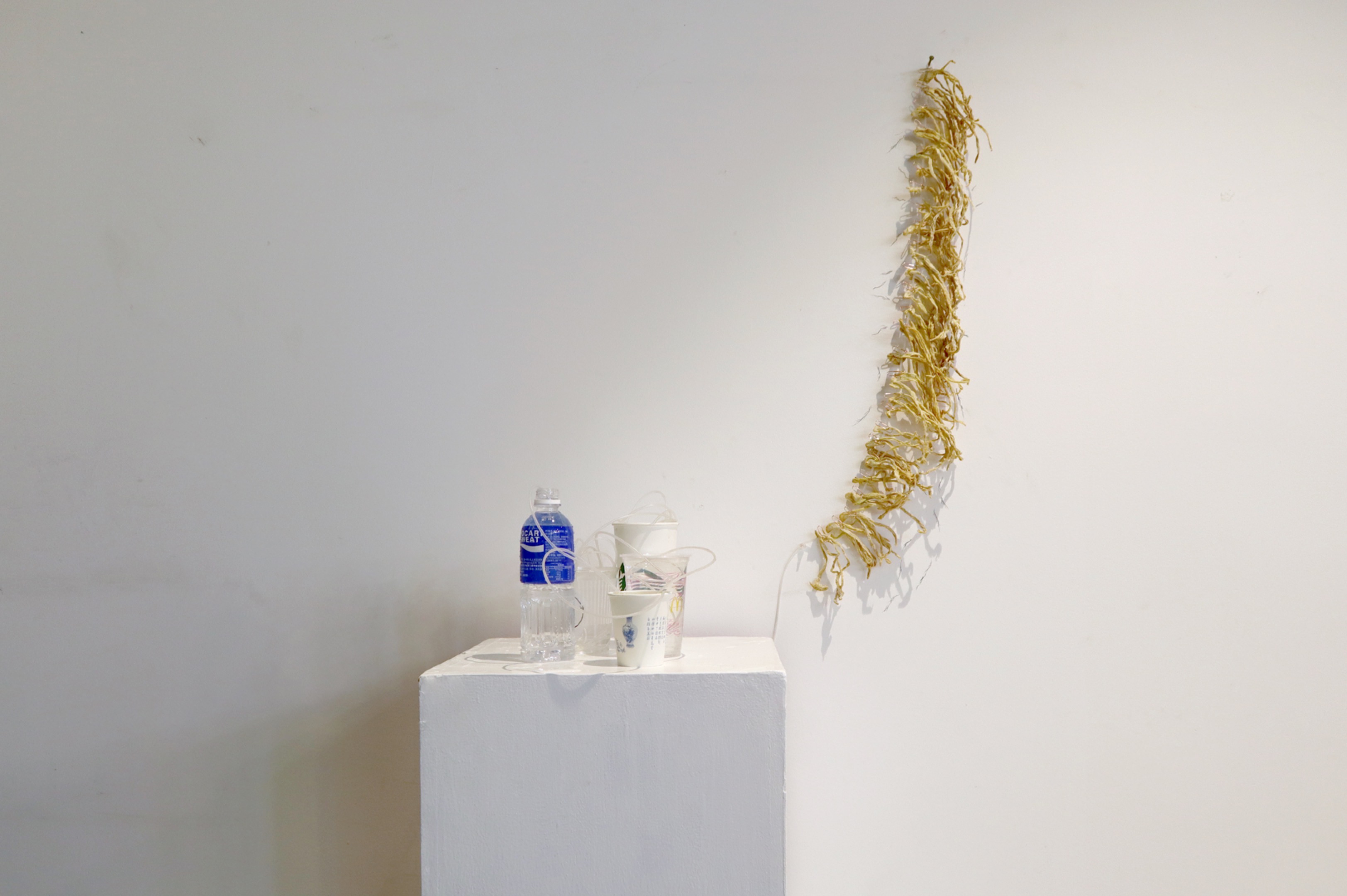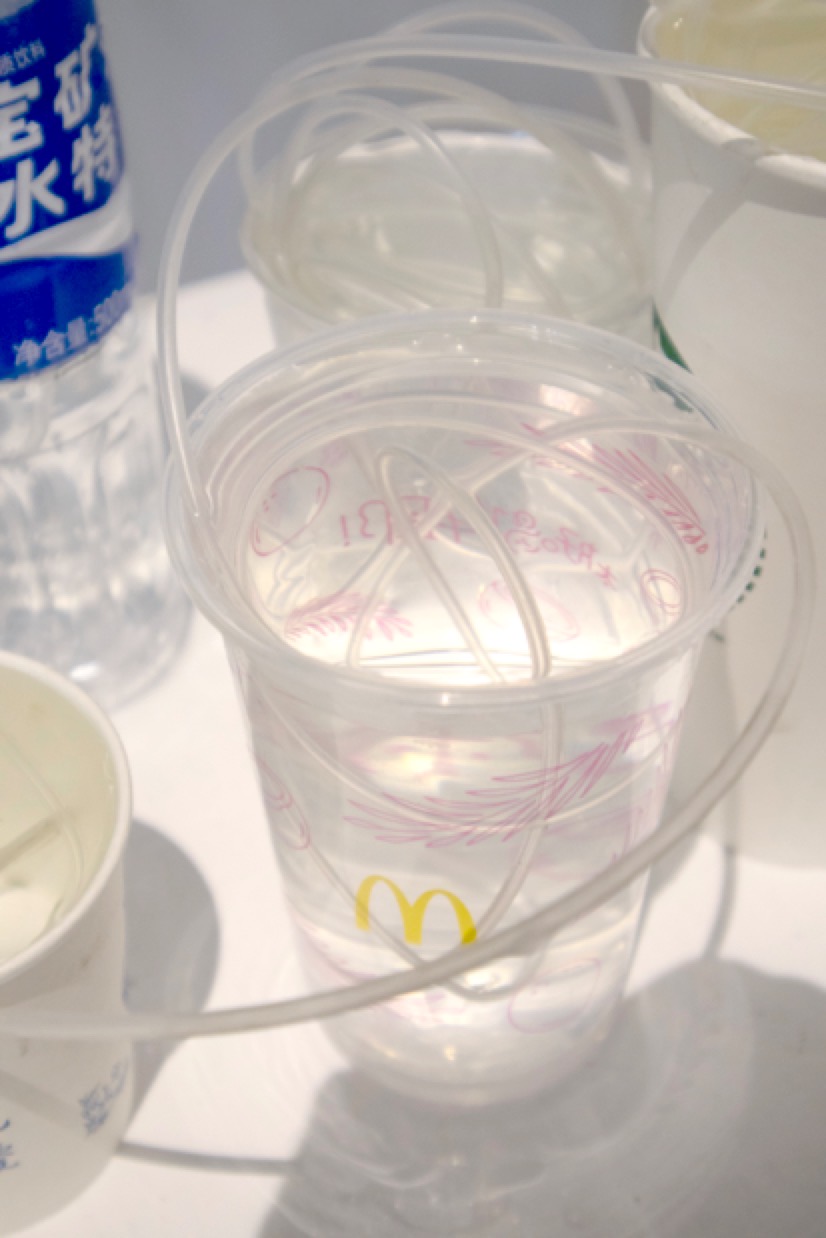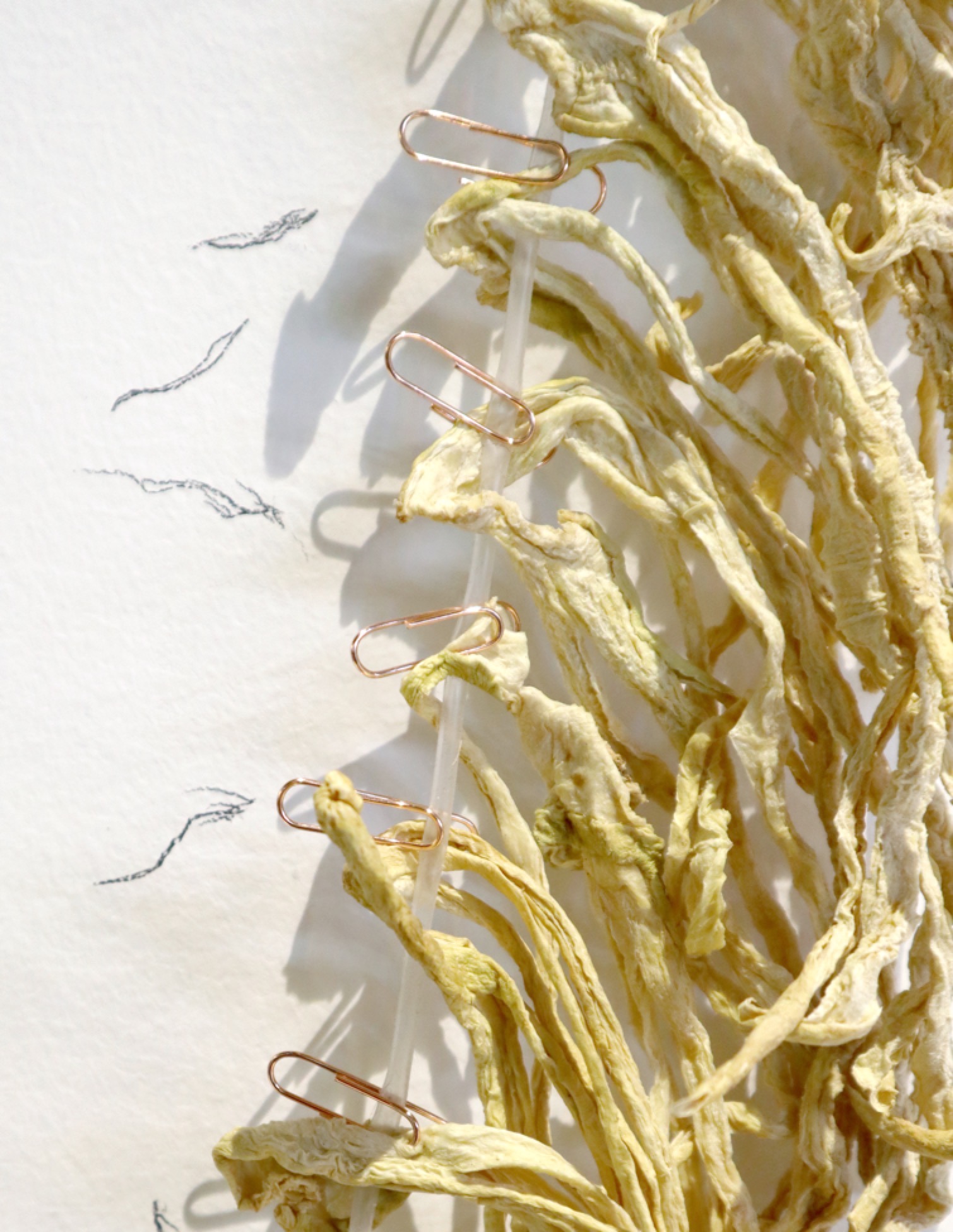Futile Supply



作品名称:无用供给
媒介:综合材料装置(晒干的萝卜干、水管、塑料瓶、水)
尺寸:可变
创作时间:2019
作品说明
《无用供给》构建了一个关于生命力、资源分配与人为干预的视觉隐喻。作品的右侧,一串风干的萝卜干被固定在墙上,如同一条枯萎的脊梁,承载着过去的水分记忆。而它的下方,水管连接至地面上的塑料瓶,这些瓶子盛满了水,看似准备输送,却让人不禁疑问:这一供给是否仍然有效?或是已然无用?
萝卜干的状态象征着生命的流失,而塑料瓶中的水——被工业化生产、封存和管理——成为了一种迟来的、徒劳的援助。这种对照关系,指向了生态危机中的补救措施:当自然已经因过度开发而衰败,我们所提供的“补给”究竟是修复,还是一种象征性的、自我安慰的行为?
作品试图让观者思考人与自然的关系,以及现代社会对资源的管理方式:我们真正拯救了什么,还是只是在延续一种无可挽回的消耗?
Title: Futile Supply
Medium: Mixed media installation (dried radish, water pipes, plastic bottles, water)
Dimensions: Variable
Year: 2019
Artist Statement
Futile Supply presents a striking contrast between depletion and delayed aid, questioning the effectiveness of resource distribution and human intervention in ecological processes. On the right, a string of dried radish is affixed to the wall, resembling a withered spine—a fragile remnant of its past vitality. Below, a series of water bottles, connected through plastic tubing, appear to offer hydration, yet the fundamental question lingers: is this supply still useful, or has it already lost its purpose?
The shriveled radish symbolizes the loss of life, while the bottled water—industrialized, stored, and artificially controlled—represents a belated and possibly meaningless attempt at restoration. This juxtaposition highlights the paradox of modern ecological efforts: when nature has already suffered irreversible damage, are our interventions truly effective, or are they simply performative gestures to ease our conscience?
The work invites viewers to reflect on the relationship between humans and nature, and on the ways in which contemporary society manages resources. Are we truly saving something, or are we merely prolonging an inevitable depletion?